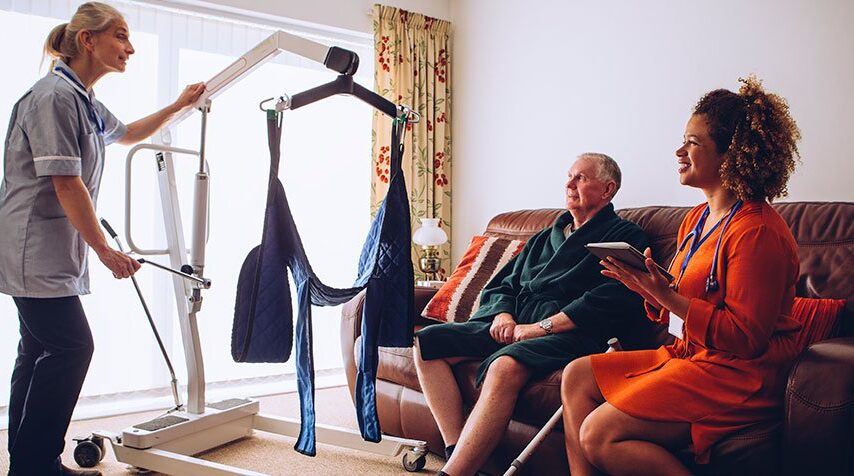Throughout the US, an estimated 6.2 million Americans who are aged 65 and over are living with Alzheimer’s or another type of dementia and therefore memory care is absolutely essential for the elderly.
The fact of the matter is simply this: you should not feel guilty. Choosing the right housing option for your aging relative that is specific to their needs can only make their life better, not worse. The best thing you can do for a person suffering with Alzheimer’s disease is to do as much research as possible around the disease itself as well as any treatments and ways to handle the disease in the future.
Care decisions are never black and white and nobody is guaranteed to make exactly the right call in the right circumstances, every single time. For this reason, we owe it to ourselves and the person we love to do as much research as possible and to take all the time we need to assess what our loved one can comfortably do on their own and what they need help with moving forward.
Remember: your loved one is the only priority. What is best for them is invariably the best thing for you as well and you must approach the issue together as a unit.
A Higher Frequency of Issues
A strong sign that it may be time to start considering other options for the good of your ailing loved one is when you start to experience a more frequent need to call for medical care and medical attention and also if accidents around the home are happening more regularly and with more severe repercussions.
If household bills and other financial responsibilities are beginning to become regularly neglected or if important mistakes are being made pertaining to the general running of the home, making the move to an assisted living facility such as Oak Park senior living is a safe and productive option for the future.
Personality and Mood
As a person starts to lose part of their memory, be that short or long term, they generally and, completely understandably, become increasingly frustrated with themselves and tend to become aggressive and lash out at the people around them. Signs of aggression can be dangerous, not to mention extremely distressing, for the caregiver just as much as the person who is suffering. Professional staff within assisted living facilities are fully trained to safely handle aggressive tendencies in residents while simultaneously ensuring optimum safety and security for them and the people around them.
Mental Health
Companionship is a vital part of a happy and healthy life for everyone, regardless of age and status, with regular and fruitful social interaction becoming even more necessary for a healthy life as people get older. If your loved one’s social activities have significantly decreased, an assisted living facility would greatly reinvigorate their interactions with others and subsequently significantly enhance their level of happiness and satisfaction.
If there are clear signs from your relative that their cognitive impairments are affecting their mental health, it may be time to start considering assisted living as a safe and secure option to afford them the freedom they desire while knowing trained professionals are on site to assist as and when is needed.
Your Own Mental Wellbeing
Being the primary caregiver for someone whom you care about deeply is an immense and often mentally exhausting responsibility. It is, therefore, completely understandable if as the primary caregiver you often feel conflicted and exhausted in equal measure. Remember, you are doing your absolute best to conscientiously make decisions for the health and safety of your loved one and you can only use the resources and information available. Unfortunately, not one of us has a crystal ball or, even more regrettably, the gift of hindsight. Instead, then, we must make the best decisions we can with the facts we have in front of us at the time.
Learn to accept and to fundamentally understand that you cannot put your life on hold just so you can take care of someone else’s. Remember that your family member will still develop increasingly severe symptoms and signs of their illness, regardless of whether you are their primary caregiver or not and irrespective of where they reside.
Assisted living facilities provide an altogether higher level of care, safety and comfort for loved ones than you can possibly achieve on your own. Professionally trained caregivers with a personal touch will help your loved one with activities they are no longer comfortably able to carry out but encourage them in activities they can do on their own.
What Do I Do Now?
Patently obvious to some, unfortunately perhaps, not as obvious to others, your role in your loved one’s care, does by no means end with their placement into an assisted living facility.
More accurately, your role fundamentally changes and delivers a whole host of different and, often more challenging, duties and responsibilities. You must strive to ensure you strike a healthy and consistent balance in terms of your visiting hours and duration; visiting too often can cause stress to your relative and visiting too infrequently can cause friction between you and your loved one, not to mention the risk of developing a strong and corrosive guilt complex as a result.
Accepting and adapting to the fact that your loved one has moved into an assisted living facility and that you are no longer their primary caregiver can be a challenging and sometimes even traumatic transition. Like any major change to your daily life and routine, you have to learn to adapt and fill your time with other pursuits.
Stay positive and stay safe in the knowledge that your decision, when professionally researched and planned, was the best possible one to make for your loved one. And, as previously mentioned, they are the utmost priority.










